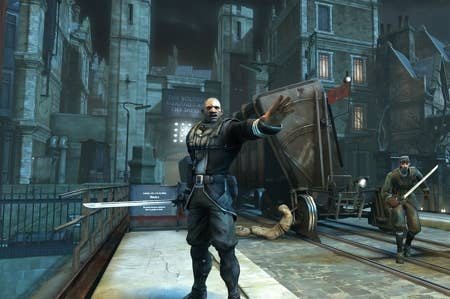Dishonored dev: "It's been a poor, poor five years for fiction" for the industry
Viktor Antonov talks about the lack of variety in the industry's creative works
Dishonored visual design director Viktor Antonov is best known for creating Half-Life 2's City 17, but in the years since that title, he feels that the industry has stagnated creatively. Antonov told Eurogamer that the industry could do more to branch out into more genres.
"It's been a poor, poor five years for fiction in the video game industry," Antonov began.
"There have been too many sequels, and too many established IPs that have been ruling the market. And a lot of them are war games. And they're great projects and great entertainment, but there's a lack of variety today."
"So, when you step out of this established genre, people cannot grasp it, or the press tries to find a match. There's a place for thousands of different sub-genres and genres. Imagine the times when you were in the '40s and there were Westerns in Hollywood cinema: there were so many of them that none will be compared with another one, because there was a genre," he said.
Antonov's closest comparison to what Arkane Studios and Bethesda are doing with Dishonored is Irrational's BioShock games.
"We're doing a historical piece, a retro-futuristic piece, which has pretty much nothing to do with BioShock except for the fact that it doesn't take place in the far future, but has references to the past. And, unfortunately, BioShock and Dishonored are the only two games that go into that fiction for the past - how many years?" he questioned.
"So, lack of variety in what's in the market leads to associations like this. There should be more historical realistic worlds out there. And too bad there are not; I was expecting there to be 20 games like this."
Antonov called on developers to push the boundaries farther.
"I'm extremely happy of where technology has gone. But artists and art directors should make their own life a little bit harder by pushing management to take more artistic risks, and use the technology to a better, higher level. That's what I've been doing and suffering by - I've been spending as much time creating, as convincing the people who are financing games how important it is," he said.
"Games should sort of split up and specialise and assume that there's such a thing as genre, and they shouldn't try to please everybody at the same time and try to make easy, diluted projects. Let's go for intensity and quality."

